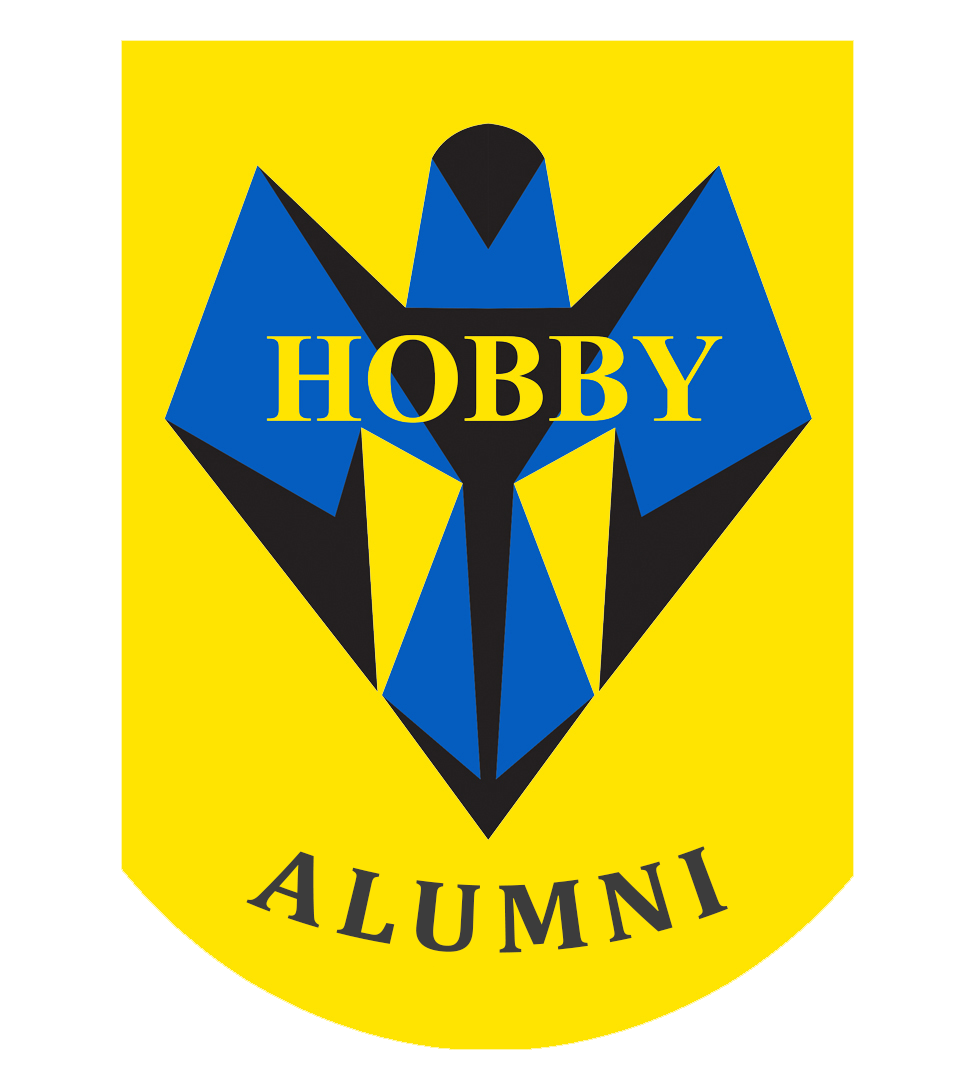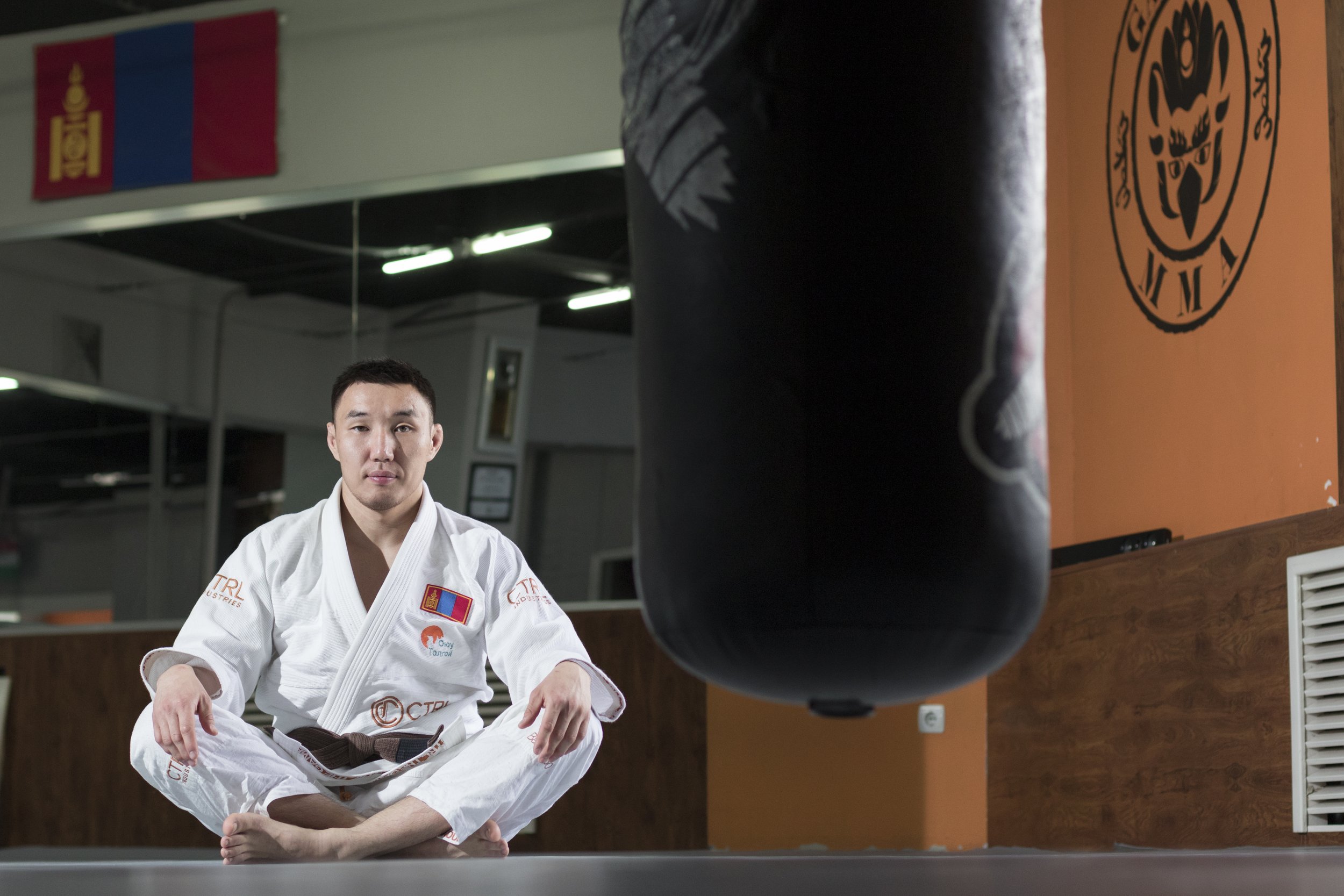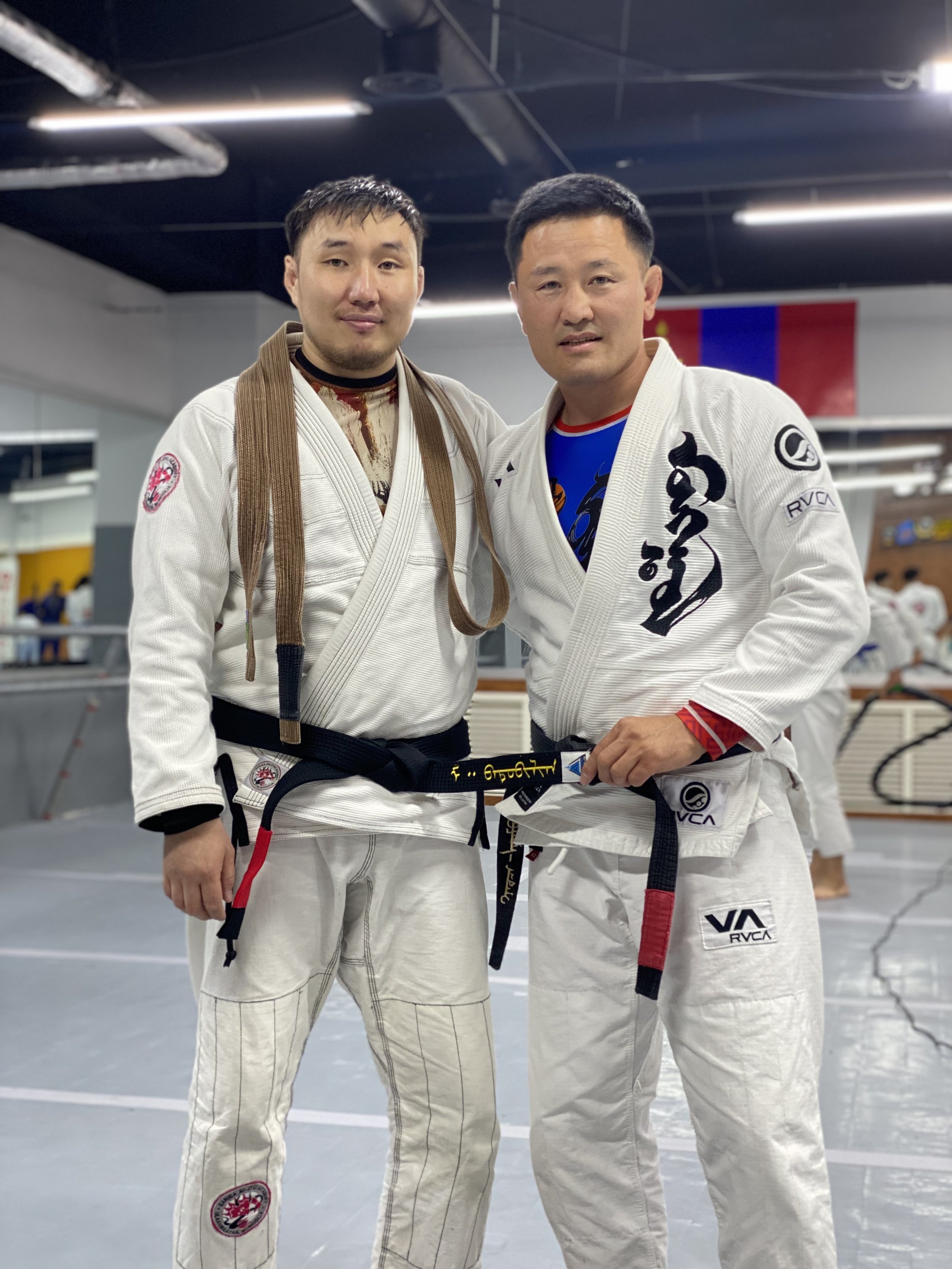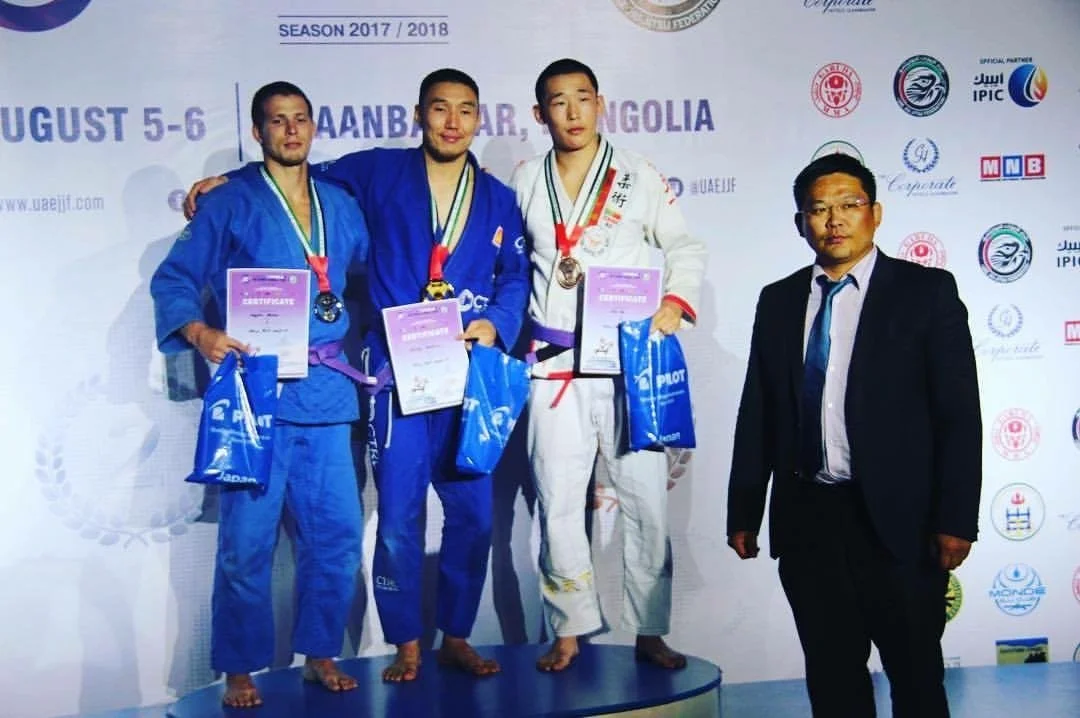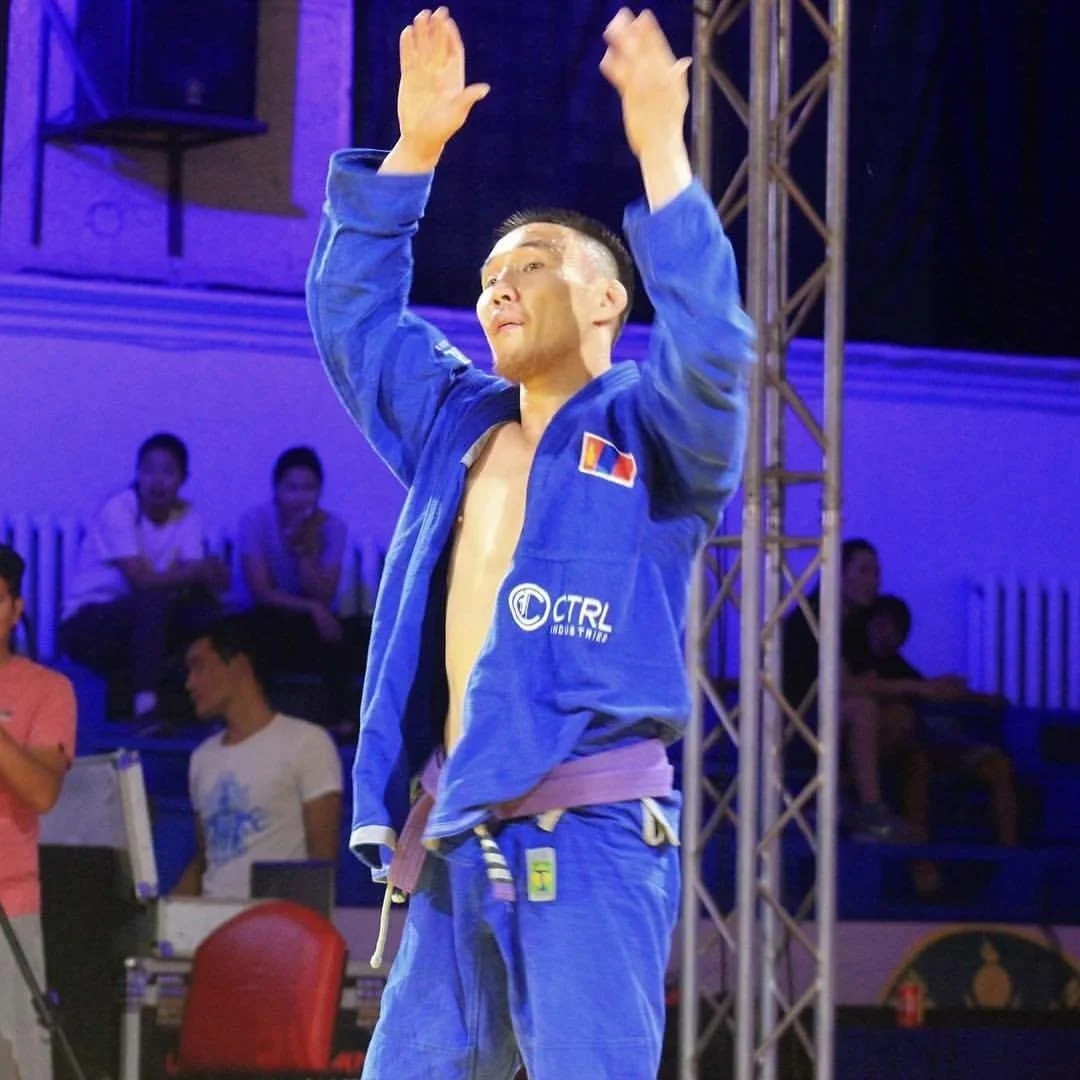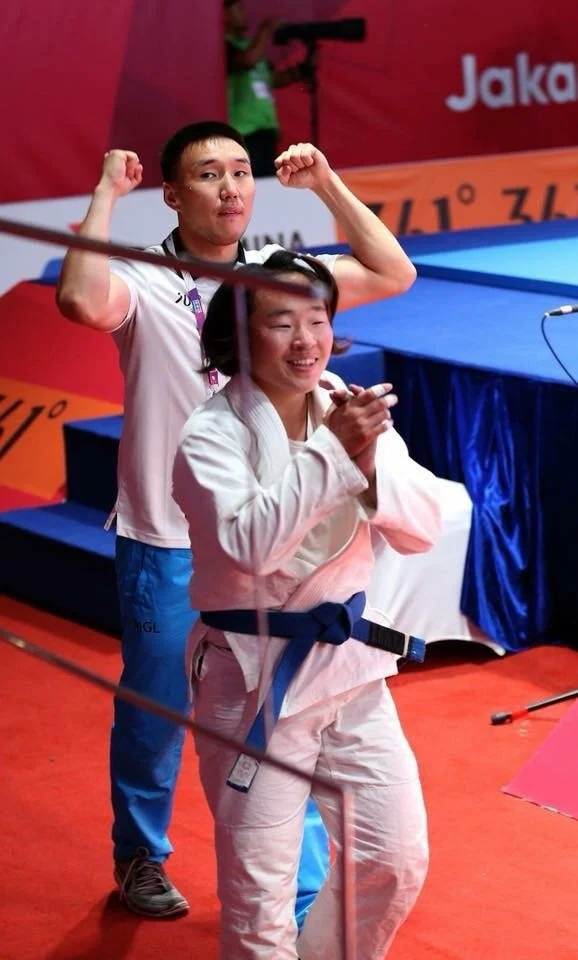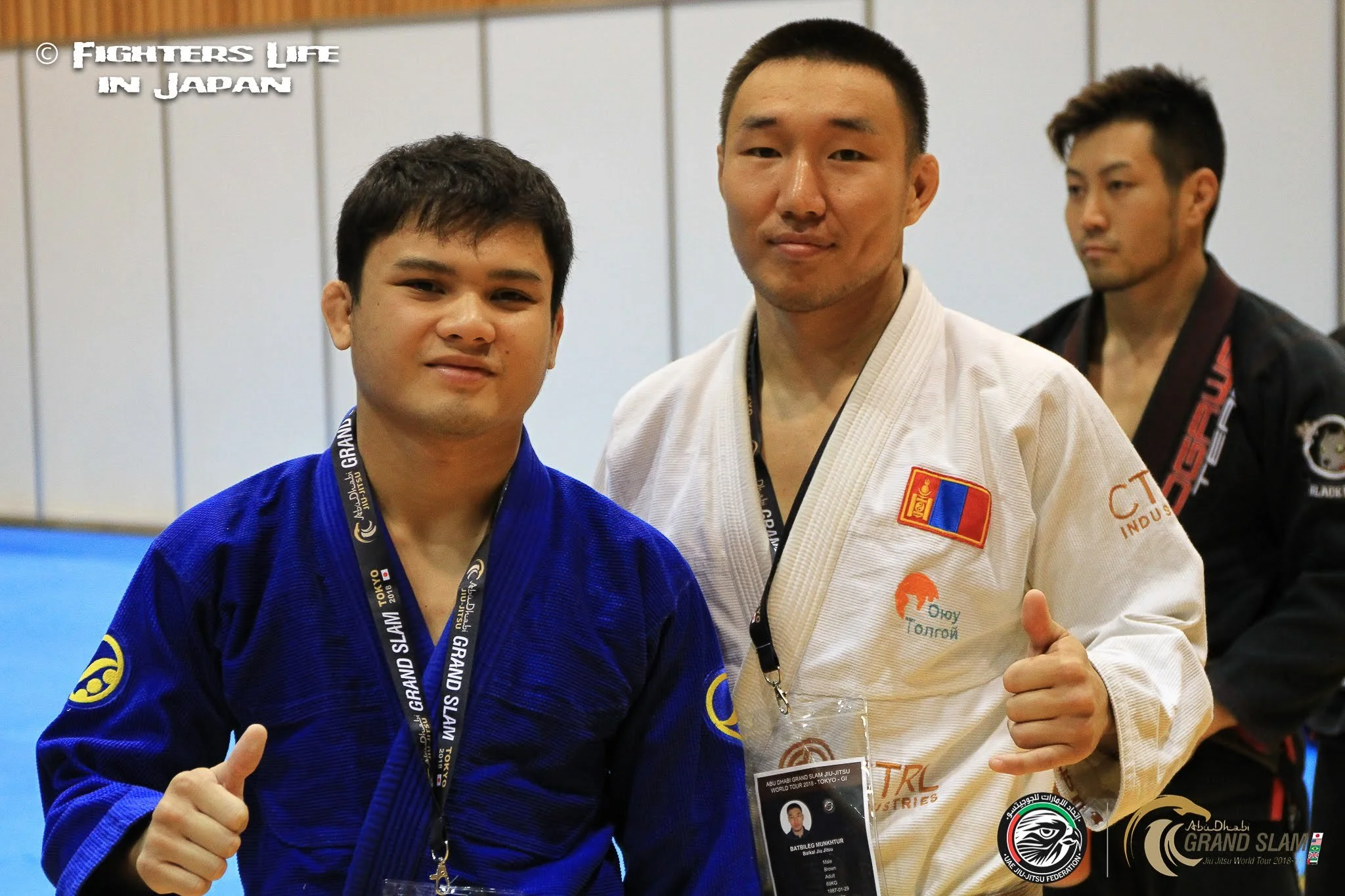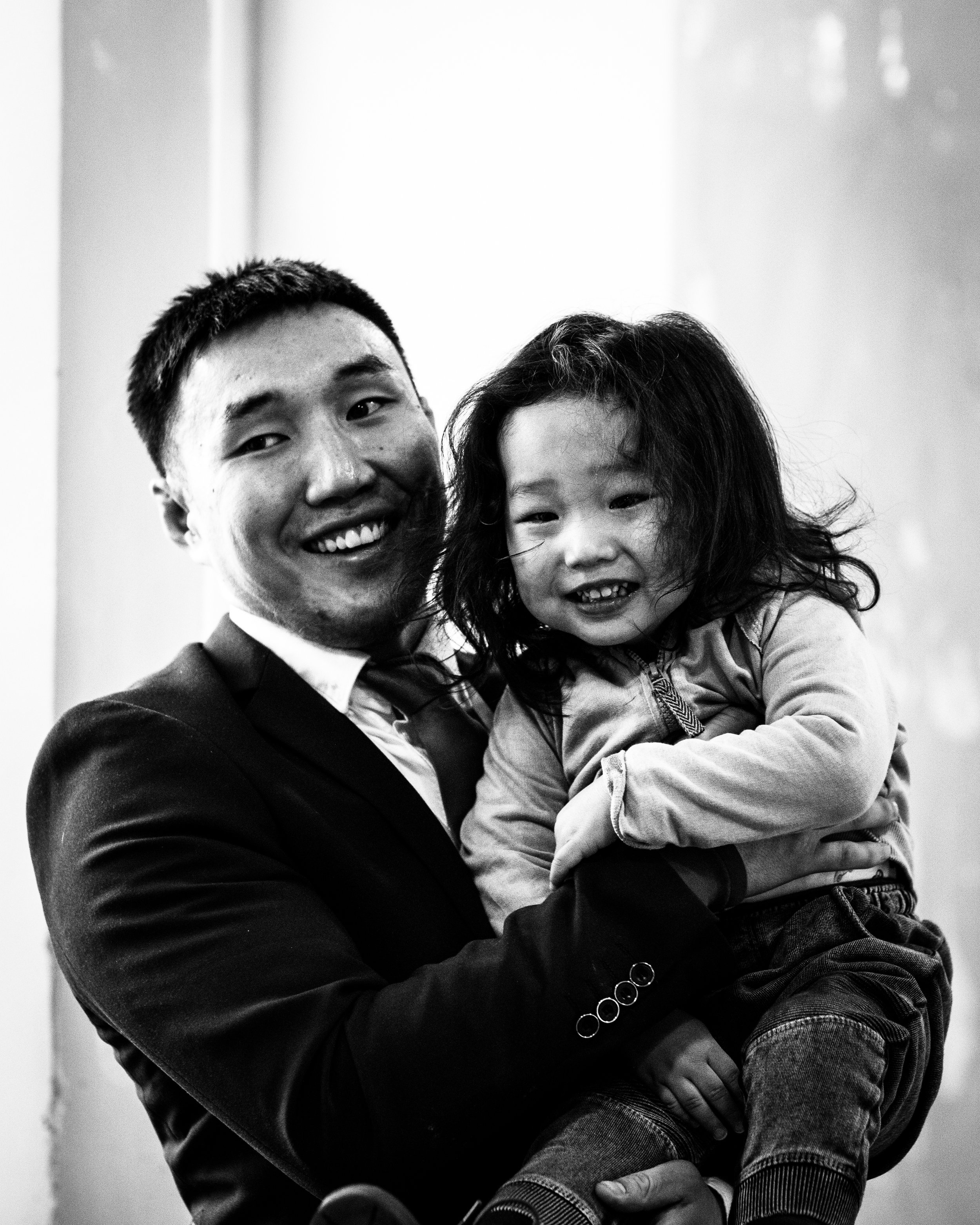BATBILEG Munkhtur, Jiu-Jitsu Black Belt - Founding Garuda Martial Art School & A Decade at Rio Tinto
Interviewed by Gema Gerelsaikhan
Get to know Batbileg Munkhtur who is the co-founder of Garuda BJJ&MMA academy and currently serving Oyu Tolgoi Business analysis team as Senior Advisor.
Based in Ulaanbaatar, Batbileg has a B.Sc. in Management from Goldey-Beacom College, Wilmington, Delaware, USA; and an MBA in Finance from La Salle University in Philadelphia, Pennsylvania, USA. He is trilingual in Mongolian, English and Russian.
Full name: Batbileg Munkhtur
Hobby Alumni: Class of 2004 (Years attended 2003-2004)
Higher Education: BSc (Goldey-Beacom College, Wilmington, Delaware, USA) & MBA (La Salle University in Philadelphia, Pennsylvania, USA)
Languages: Mongolian, English, Russian
Sector(s): Mining
Current Workplace: Oyu Tolgoi
Current phone: Iphone 7
Countries lived in: Mongolia, Russia, USA
Past Workplaces: Internships (Tejas Securities)
Frequented Website: bjjfanatics.com , flograppling.com
3 Favorite Restaurants or Coffee shops in UB: Hana, Azurro,
3 Books To Recommend: Mind Over Muscle by Jigaro Kano, The Book of Five Rings : Miyamoto Musashi’s Art of Strategy, The Gulag Archipelago all volumes
3 Movies or TV-Shows To Recommend: Seinfields, Fight Club, Tungalag Tamir
3 Songs You Are Listening To Most Right Now: not real into music
3 Apps To Recommend: Stoic. , UBcab, Flosports
3 Podcasts or YouTube Channels To Recommend: Munchies by Vice, Morning Kombat by Showtime, Lex Fridman podcast
EDUCATION
How many years have you studied at Hobby School and where have you studied before and/or after Hobby?
I transferred to Hobby in 9th grade, and before that I was with the Russian Embassy School #14 and before that my family used to live in Moscow. One summer, my parents wanted me to go to college in America and Hobby was a better school at teaching English than Russian school, so that’s probably why we’ve decided to go for Hobby. It was my mom’s decision to switch to Hobby.
How would you describe the difference between Russian School #14, Hobby School and the schools you went to when you were in Moscow?
The Russian school curriculum was more structured and disciplined. Hobby was more open to new things.
What kind of a student were you when you were in Hobby?
I believe I was a mellow and quiet student back then, but I wouldn't be surprised if my friends describe me otherwise.
What’s your fondest memory at Hobby?
I’m still friends with my classmates and I still talk to them, so looking back, the best memories are making friends. Fondest memories - hobby theatre and art activities.
After graduating, you went to the USA for your bachelor’s degree?
Yes, I went to Delaware - Goldey Beacom College for 4 years.
What did you do after that?
After that I came back to Mongolia and worked for Frontier Securities for a year and a half and then I went back. It was during the GFC (Global Financial Crisis) in 2009 and a lot of people were doing an MBA, so there were no cool jobs in UB back then.
Where did you decide to do your MBA?
I went to La Salle University in Philadelphia, Pennsylvania. I was very familiar with the area and I knew which school I liked. I was pretty young back then. Doing an MBA at the age of 23-24, I was too young and most of my classmates were over 30s. Most of my classmates were mid-level managers at Pfizer, Merck and Johnson & Johnson, and there were some Navy guys as well. I liked my classmates a lot. The University is pretty famous for its basketball and offers a pretty solid MBA which is pretty selective to get into.
So you were done with your MBA when you were 25? It must be nice to get it done with schools at an early age?
Yeah, but I wish I did it now, because it would have been more beneficial for me. Back then I regretted it, but it is what it is now. I guess I was getting the best advice I could at the time. The kids these days know a bit more about education and how to get into better schools and how to ace those interviews, etc.
What were your hobbies when you were a kid?
I loved practicing grappling sports. I used to go to judo and sambo classes and was a frequent at Central Sports Complex (Спортын Төв Ордон).
Did you prepare for SATs and TOEFL?
Yes - TOEFL, I didn’t do SAT. Back then, when you had a TOEFL score of 550 and above, it was enough.
Any tips you’d like to give to 18 year olds?
Being 18 is weird. You are at that time to make the important steps that will impact your life. I don’t know, maybe my tip is just enjoy being 18 ???
What kind of jobs are the future jobs in your opinion? Any trends you’re seeing?
I think the climate thing is real. Jobs involving climate change and reducing carbon are going to become an industry. Copper will be a big part of this.
Did you get a scholarship? Is it hard to get a scholarship?
In my first year, I had US$1,000 - US$1,500, mostly due to the fact that I was the first student from Mongolia. I tried to join the Cross country team for the college to get more scholarships or financial support. I thought I could run the team. But I overestimated myself then.
CAREER
Did you do any internship or student jobs during your studies?
I worked for the athletics department on campus, helping with assistant coaches. It was a low paying job, but it was a pretty cool job and I did it for 2 semesters. During my MBA, I did an internship at a New York investment bank called Tejas Securities.
“Back then we were working on deals like the Kim Kardashian family’s make up product line for convenience stores which was pretty important for the firm, as well as the Israeli technology for container inspections, etc. ”
It was pretty interesting. I did this internship during the summer and after that, I lived in Brooklyn for about 9 months without a job, trying to get a good job. During that time, there was an event with the Asia Foundation, and Mongolian Prime Minister Su.Batbold, Rio Tinto Copper Director Andrew Harding and others were there. All Mongolians living in New York gathered there, and that’s how I got in touch with Rio Tinto and got the job in Utah.
Why were you interested in Finance?
It was popular back then and all of my American friends wanted to get a job in Finance, because that was the highest paying job. I thought, why don’t I try this.
Would you advise an 18-year old to get into investment banking?
You can make a career out of anything these days. Investment banking is not the only highest paying career right now. Back then, it was hot. You work certain years in investment banking and by the time you become a managing director, you would make a lot of money. I guess now looking back, my mindset was a bit narrow back then. Most people only looked at the $ value and it is not all about that.
So you started with Rio Tinto in 2012?
Yes I did. I started in Salt Lake City, Utah. They have a 120 years old copper mine similar to Oyu Tolgoi there, and that’s how I started my career in Mining.
What was your first title?
I was a Graduate analyst. The program rotated me within the Finance Department for 2 years. There are many different areas in the Finance Department, like financial analysis, business analysis, value planning and all that.
Was there a lot of Mongolians working in Rio Tinto in Salt Lake City?
Back then around 5-6 people did the same program as me.
Do you know how many Mongolias are working there now?
Now there are more mature manager-level professionals that are recruited to work there with their experience in Oyu Tolgoi. Oyu Tolgoi has been operating for over 10 years now, and there were many professionals who gained a lot of experience and they’re now ripe to offer their values globally.
So you’ve been with Rio Tinto almost 10 years now?
Yeah almost. 2 years in Kennecott and 7 years in Oyu Tolgoi. So 9 years combined.
So how is the mining industry changing? And tell us more about what exactly you do at Rio Tinto now?
Over the last years, my specialty is about how to make value and how to create more value, perhaps with cost reduction or revenue enhancement, starting from ore to the market stage. My job is to support high level decision-making, where to invest money and where to save money to create more profit margin, etc. Regarding the mining industry in general, there are always these bust-and-boom cycles, and we know that. Mining is really fundamental to our livelihood, such as how copper will be there in our lives in the long run. Yes, there are new technologies. Who brings those technologies? Companies like Rio Tinto.
What is the most common misconception about Rio Tinto or Oyu Tolgoi?
Maybe I’m not the best person to comment on that. We have a communications and government relations team for that.
What does your typical day look like?
Currently I’m mostly working remotely. Most of my days are filled with meetings. There are slow periods and there are busy ones. I look after the process called the Investment Committee, basically to facilitate the decision making on which projects to invest or to approve some capital for certain projects, etc. Basically my role is analytical support to the senior leaders.
So you look after projects outside of Mongolia?
Mostly in Mongolia.
Can you tell us about your career transition over the years in Rio Tinto?
Graduate analyst, Value Chain analyst, Senior Business Analyst and now I’m a Senior Advisor at the Business Analysis Department.
FUN QUESTIONS
How do you relax and what is your hobby?
I’ve been doing Jiu-Jitsu for over 12 years. When I was in Hobby, I used to do grappling and judo, etc, but I was never a big tournament kid back then. Every Sunday I used to go to the Central Sports Complex and I was a big fan of it. I was not a big guy in terms of size, so Judo was good for me.
“The whole idea of Judo is to defeat someone with minimum effort and maximum efficiency. ”
When I moved to the US, Judo was not popular, and the only thing that I could substitute was Jiu-Jitsu. I didn’t know what Jiu-Jitsu was back then. The only thing that I knew was it came from Judo or had some Japanese connection and it was developed in Brazil and it came to the US. I was not aware of the whole culture back then. The first time that I was exposed to BJJ /Brazilian Jiu-Jitsu/ I kind of ignored it, because it was not really popular back then and was not really developed. But then when I went back to the US for my MBA, it had properly flourished in the US. I was pretty impressed and that's how I started getting involved.
So when was Garuda founded?
So, I did probably 5 years of Jiu-Jitsu since 2009 before coming back to Mongolia and founding Garuda in 2014. Jiu-Jitsu was not famous in Mongolia back then, but there were some seeds in it. I found like-minded people and we bonded. At the beginning, we used to train at Central Sports Complex or there were small studios we’d hire and train there. But then we wanted to train more. Going fast forward, we wanted to create an environment where we could train jiu-jitsu, and came up with Garuda. In the beginning, we only wanted to train ourselves, and then later on we started offering classes. When we started offering classes, it became more valuable. It was something more than transactional, it was more like a family.
“The original intention was never a business, but it grew a lot and today we’re in a pretty good position to offer value to our, I guess I should say customers, but I’d say family members. ”
Can you tell us who the original founders are? Are there any full-time sports people?
So it is me, who knows quite a lot about jiu-jitsu professionally, but then also I have a life and work outside of jiu-jitsu. There are also full-time jiu-jitsu people like Bold-Erdene akh, who is also the Founder of Mongolian Jiu-jitsu Federation. The third person who founded Garuda is Munkhsukh, current Rio Tinto Copper Managing Director.
So only 3 people?
Yes, 3 of us are the original founders. But then more people joined and opened branches around the country.
So how many branches are there now?
The original Garuda studios are 3, the one in National Amusement Park, the second one is in Zaisan and then one in Gachuurt, named Garuda Central, Garuda Zaisan and Garuda East respectively. And then there are few other academies that came out from our students.
In your opinion, what do you learn from sports and what kind of benefits does sports bring? Why do you like jiu-jitsu more than other sports?
Jiu-jitsu is a martial arts sport, so there is always an art aspect to it. Jiu-jitsu is also a sport. Sport is part of an art. Sport is a tool to accelerate your learning and gauge how effective your jiu-jitsu is.
“Art is much more than sport, it is self-defense and lifestyle and it is a tool to become a better self and a lot of psychological and cultural side to it. Some people have religion to self-develop, and jiu-jitsu is also a self-development tool that can help you grow mentally, physically and socially. It is a pretty cool thing to develop oneself. ”
Practicing judo, jiu-jitsu, etc for all these years, you must have a lot of understanding of how one should better take care of their body and mind in a certain way, can you please share with us some of the secrets?
Doing jiu-jitsu puts you under a lot of stress, and entering a tournament is like you have to make a right decision within 5 minutes. Once you put yourself under such stress voluntarily, you become resilient. I notice this at work, you become more resilient and it helps with every aspect of your life. I must be preaching it like a religion and it helped me with career, in life and overall with everything, so it is my lifestyle now.
Why do you like jiu-jitsu more than other sports?
It's been developing rapidly more than 30 years since UFC 1. The whole purpose is to defeat someone with less effort. There are some good elements to it. Personally I’m exposed to one of the greatest jiu-jitsu masters in the world and competitively, I’ve fought with pretty high-level athletes and I know how they train. I know how they feel when you touch them and have been training in Brazil, which is the original country it developed. So from all these experiences, there are certain cultural elements to it that I like, such as respect and bow, expressing yourself and there is a very good balance of all democracy. The whole jiu-jitsu is evolving with new characters, new techniques.
Jiu-jitsu is from Brazil and Judo is from Japan, so I’m assuming a combination of these two, whereas Brazilians are very energetic and self-expressive and compared to Japanese culture, people are very respectable and disciplined. So these two combinations must be very interesting.
Exactly, so you have the combination of strict Japanese at the same time you have that freedom of Brazilians. They made it into a very unique package. And you learn how to kick ass, which is very cool.
I know you’ve been going to a lot of tournaments, can you tell us more about your accomplishments and also Jiu-Jitsu is in the Olympics now?
No, not in the Olympics yet. It made significant steps, so hopefully in 2028 Los Angeles, we can make it to the Olympics. In order to make it to the Olympics, you have to have National Championships, Continental Championships, World Championships. In the past couple of years, all these have been established, and I was fortunate enough to attend all these tournaments.
“I have attended the World Championship 4 times and I haven’t won any medal yet, but I’ve been competing at the highest level with the best guys and the quality is up there. I don’t regret losing to those guys, and I’m honored to share a mat with the best athletes of this era. I haven’t won the best ones yet, but won some Regional and Asian Championships. I think in 2017, I was #1 ranked brown belt in Asia, for a period of 3 months, that’s pretty high achievement in my case, and I’m pretty proud of it now. ”
I know you’ve got Black Belt now. How long does it take to get Black Belt?
Yes, I’ve been promoted to Black Belt May this year. I’m very honored. When you’re into jiu-jitsu, your aim is to be the best. Some instructors say it is only the beginning. The belt system goes white, blue, purple, brown and black. And the average year to earn is 10 years and it took me 11 years. I’m very happy that I invested my time and energy for the last 11 years to earn this and I’m planning to spend even more.
How long does it take for other sports to get Black Belt?
I’m not sure about the other sports, but I know the BJJ has the hardest belt system.
Working in Rio Tinto, and getting Black Belt and having a family, how do you find balance in all these?
You have to invest time where it matters to you. I was not super aggressive towards my career and the sacrifice for that is that I enjoy my jiu-jitsu and family time is always important, so you have to put it up there as a priority. You have to know what is important in your life. So far, I’m happy with all of my choices.
Who is your role model in Mongolia and one outside of Mongolia? A living person and why?
I look up to my father, simply because he is my father. He and I became closer than before after the birth of my son.
Do you have any mentors?
I have a lot of mentors, but it will be hard to name all of them or single out one of them. Munkhsukh akh and Bold-Erdene akh are definitely my mentors. We always look for some advice right. I have mentors for each position in Jiu Jitsu.
A personal advice you would give your 18 year old self?
Don’t be scared.
How would you define a successful person?
Someone who’s happy with their life and experiences.
What are your good habits and bad habits?
My bad habit - I don’t sleep much, and I’m not organised. Good habit - I am ready to put the hours in when necessary.
Funniest story at work you can share with us?
I came to work without my laptop but with my Jiu Jitsu gis several times.
If you can pass 1 law globally, what would it be?
Mandatory jiu jitsu class for everyone.
If you could have dinner with anyone dead or alive who would it be, and why? Also, what would be your first question?
I always like meeting the best jiu-jitsu masters. That’s probably the direction I’d go. I wish to have dinner with Rickson Gracie. The man is a jiu jitsu hero.
Who would you recommend to interview next from Hobby Alumni? And Why?
I’d recommend Tenuun Otgonbayar from class 2005. I believe he has a lot to share.
